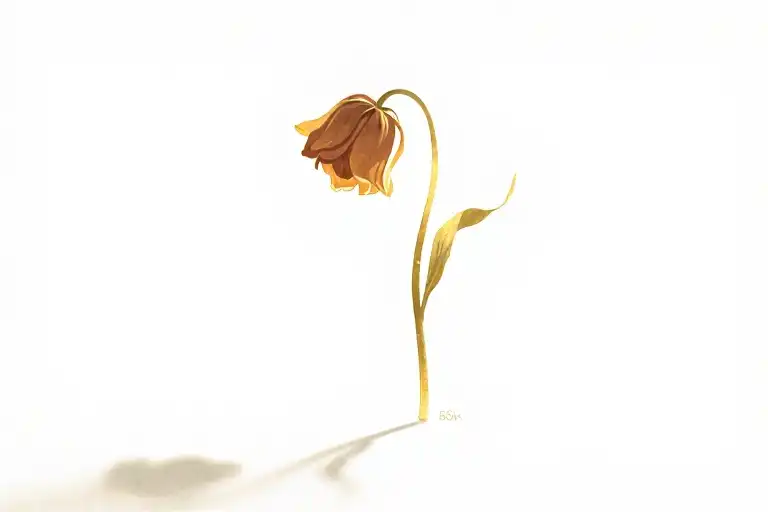The alarm goes off, and before your eyes even adjust to the light, it begins—that familiar tightening in your chest, the weight pressing down before your feet hit the floor. You haven’t even moved yet, but the mental checklist is already scrolling: unfinished tasks from yesterday, meetings you’re unprepared for, messages left on read. The day hasn’t started, but you’re already playing catch-up in a race where the finish line keeps moving.
This isn’t just tiredness. It’s the visceral experience of living in a world that treats human beings like perpetual motion machines—where your worth gets measured in productivity points, and ‘rest’ is something you have to justify with medical documentation. Your body knows the truth though. That heaviness behind your ribs? That’s the collision between what society demands (‘Be exceptional!’) and what your nervous system can actually sustain (‘Please, just let me breathe’).
What if I told you—really told you—that this morning struggle doesn’t make you defective? Not in the inspirational-quote-on-a-coffee-mug way, but in the bone-deep, biological truth kind of way. Your fatigue isn’t moral failure. That mental fog isn’t laziness. They’re signals from a system wired for survival, screaming that the ‘always on’ expectation is literally inhuman.
Consider the irony: we judge ourselves harshly for not meeting artificial standards that no human nervous system evolved to sustain. The 24/7 productivity fantasy ignores basic biology—that cortisol has natural rhythms, that cognitive bandwidth is finite, that even your smartphone needs charging. Yet here you are, feeling guilty for needing what every complex system requires: downtime, recovery, the right to occasionally exist without output.
This isn’t another pep talk about ‘powering through.’ Frankly, that genre needs to die. What you’re holding is permission to question the entire premise—that your value fluctuates with your daily output. Tomorrow morning, when that preemptive dread hits, try something radical: place your hand over your sternum and acknowledge the sheer miracle that this fragile collection of cells keeps showing up, day after day, in a world determined to convince it otherwise. The real rebellion isn’t working harder—it’s daring to believe you’re worthy even when you don’t.
When Your Sense of Worth Gets Hijacked
There’s a quiet theft that happens daily – the slow erosion of how you measure your own worth. You might not even notice it happening until one morning you wake up with that familiar hollow feeling, checking your mental checklist before your feet even hit the floor. Did I accomplish enough yesterday? Will today measure up? The unspoken rules we’ve absorbed whisper that your value decreases with every unproductive hour, every postponed task, every moment spent simply being rather than doing.
We’ve been handed three particularly damaging lies about self-worth:
Lie #1: Your productivity determines your value
The modern world equates busyness with virtue. Empty calendars induce guilt rather than anticipation. We’ve learned to apologize for rest as if it’s stolen time. But here’s what no one tells you: Your inbox was never meant to be a moral compass. That report you didn’t finish? The meetings you skipped? They don’t make you less of a person.
Lie #2: Strength means never showing strain
We’ve confused resilience with emotional silence. There’s an unspoken expectation that functioning adults should handle stress with the steady calm of a meditation app icon. But real strength isn’t about maintaining a perfect facade – it’s about continuing to show up even when your hands shake. That client presentation you powered through with a migraine? The social event you attended despite social anxiety? Those were acts of courage, not failures of composure.
Lie #3: Growth must be constant and visible
Personal development has become another performance metric. We track our progress like quarterly earnings reports, panicking when the graph plateaus. But human beings aren’t startups. Some of your most important growth happens in stillness – in the days you spend recovering, reflecting, or simply surviving. That week you spent mostly in bed? The month you couldn’t bring yourself to journal? Those weren’t setbacks – they were part of the rhythm.
Consider Maya, a law student who secretly had panic attacks in library bathrooms while maintaining a flawless GPA. Or David, the startup founder who smiled through investor meetings while drowning in self-doubt. Their stories reveal the hidden cost of performance-based worth: we become strangers to ourselves. When your value depends on external validation, you’re always one setback away from feeling worthless.
The alternative isn’t laziness or lowered standards – it’s recognizing that your fundamental worth exists independent of your output. You don’t become more valuable when you cross items off your to-do list, just as you don’t become less valuable when depression makes basic tasks feel impossible. This isn’t about abandoning ambition; it’s about anchoring your self-worth where life’s storms can’t reach it.
Next time you feel that familiar shame creeping in – when you’re beating yourself up for another ‘unproductive’ day – try this: Picture someone you love deeply having exactly your day. Would you judge them harshly for needing rest? Would their worth diminish in your eyes? The kindness you’d extend to them isn’t pity – it’s what all humans deserve, yourself included.
Redefining ‘Enough’
We’ve been handed a faulty measuring stick. From childhood report cards to workplace performance reviews, the world keeps insisting our worth can be quantified—crossed-off to-do lists, salary brackets, productivity metrics. But somewhere between the third cup of coffee and that 2pm energy crash, a quiet rebellion begins. What if simply being counted as enough?
The Victory of Showing Up
Consider the physics of it: your chest rises and falls approximately 22,000 times per day without your conscious effort. Each breath is an act of continuation, a silent ‘I’m still here’ that requires no audience or applause. When depression makes showering feel like climbing Everest, when anxiety turns replying to a text into an Olympic sport—these aren’t failures. They’re the quiet heroism of persisting when your systems are running on emergency reserves.
Try this cognitive reframe: document three ‘uncelebrated wins’ each evening. The unbrushed hair you tied back anyway. The email you opened then closed because that was all you could manage. The full glass of water you drank while staring blankly at the wall. These aren’t consolation prizes—they’re evidence of a fundamental truth: your existence isn’t transactional.
The Friend Test
We’re curiously cruel to ourselves in ways we’d never tolerate toward others. Picture your best friend texting you: ‘Spent all day in bed crying, didn’t accomplish anything.’ Would you respond with ‘Pathetic. Do better tomorrow’? Or would you say ‘I’m so sorry you’re hurting. Can I bring soup?’
This disconnect reveals the lie we’ve swallowed: that compassion must be earned through achievement. Try speaking to your weary self as you would to that struggling friend. Notice how the language shifts from ‘You should’ to ‘You could.’ From judgment to options. From condemnation to curiosity.
The Permission Manifesto
- To need rest without it being a ‘reward’
- To take up space without justifying it
- To move at your own rhythm—whether that’s a sprint or a slow blink
- To find ‘enough’ in survival mode days
- To reject the cult of busyness as a virtue
These aren’t concessions—they’re reclamations. Every time you honor your actual capacity over cultural expectations, you’re rewriting the definition of success in real time. Some days your masterpiece will be getting socks on both feet. Other days you’ll build empires. Both count.
Here’s the radical part: you don’t have to believe this yet. You just have to act as if it might be true. The self-trust comes later, accumulating like morning light—first in slivers, then in floods.
Low Battery Mode Survival Guide
Some days feel like your internal battery is permanently stuck at 1% – the kind where even blinking seems to require more energy than you can spare. On those days, conventional productivity advice becomes not just useless but almost offensive. What you need isn’t another pep talk about grinding harder, but permission to exist differently until your charge returns.
The 10% Energy Protocol
When getting out of bed feels like climbing Everest:
- Cancel one obligation guilt-free (that optional meeting? The group chat you’re avoiding? Gone.)
- Set a 15-minute ‘do nothing’ timer – stare at walls, cry, or lie perfectly still
- Hydrate before optimizing (water first, life hacks later)
A reader named Jamie shared how this approach saved her during burnout: “Instead of forcing myself to journal ‘properly,’ I scribbled three angry words on a napkin. That napkin became my permission slip to stop pretending.”
The 30% Energy Boost
For when you’re semi-functional but fragile:
- Micro-wins only – making your bed counts as a productivity victory
- Use the ‘Pyjama Productivity’ rule: if you accomplished anything while still in sleepwear, it’s bonus points
- Reply to one message with full honesty: “Low bandwidth today – will circle back tomorrow”
Research shows depressed individuals who celebrated small daily actions (like brushing teeth) reported 23% higher self-worth than those chasing grand goals (Journal of Behavioral Therapy, 2022). Your 30% day achievements belong in that same dignity category.
The 50% Compromise
When you’re neither thriving nor completely broken:
- Adopt ‘strategic mediocrity’ – send that email with typos, serve cereal for dinner
- Create a ‘Minimum Viable Person’ checklist (3 bare essentials that maintain basic dignity)
- Protect one sacred non-negotiable (5 minutes of fresh air? A favorite playlist?)
Corporate trainer Mark discovered his team’s 50% days became more bearable after introducing “Imperfection Hours” – designated time blocks where half-assed work was not just allowed but celebrated.
Your Permission Slip Template
Fill in the blanks when energy is scarce:
“Today I give myself full permission to _ instead of _. This doesn’t make me lazy, it makes me strategic about my limited resources.”
Examples from our community:
- “…to order takeout instead of cooking. My nourishment matters more than domestic performance.”
- “…to wear yesterday’s clothes instead of laundry perfection. My comfort trumps appearances.”
Remember: Low battery mode isn’t failure – it’s your system’s intelligent response to overload. The real rebellion isn’t pushing through, but listening when your whole being whispers “enough.”
The Weight of Breathing and the Courage to Stay
There’s a particular kind of bravery in the simple act of continuing. Not the dramatic heroism we see in movies, but the quiet persistence of drawing breath when your lungs feel lined with lead. That’s the courage I want you to recognize in yourself today – not despite your exhaustion, but within it.
Your existence isn’t contingent on productivity metrics or social media highlight reels. The mere fact that you’re here, reading these words while carrying whatever invisible weight bends your shoulders, is testament to a fundamental truth: being requires no justification. Those shallow breaths you take count. The way you blink against morning light you’d rather avoid matters. Even your hesitation before facing the day carries meaning.
An invitation for this moment: Stand before any reflective surface – a bathroom mirror, a darkened window, the blank screen of your phone. Meet your own gaze without performing or pretending. Say this aloud, whisper it, or simply shape the words in your mind: “You don’t have to earn your place here today.” Notice what happens in your body when you offer this radical permission. The flutter in your stomach? The tightness in your throat? That’s the sound of old lies crumbling.
For those needing more concrete support:
- Crisis Text Line: Text HOME to 741741 (US/Canada)
- Find Your Local Lifeline: International Association for Suicide Prevention
- The “Enough” Community: A digital space for sharing unedited days (link in bio)
What we rarely discuss about survival is how it reshapes our understanding of strength. Your most ordinary moments – hitting snooze, staring at untouched coffee, scrolling mindlessly – aren’t failures of willpower. They’re evidence of a profound negotiation between what the world demands and what your nervous system can bear. Tomorrow might feel different. Today only asks you to witness yourself without judgment.
That reflection staring back at you? It’s not a project to fix or a resume to polish. It’s a living testament to the absurd, beautiful stubbornness of human endurance. However you show up in this moment – messy, tired, uncertain – you’ve already proven the most important thing: you’re still choosing to stay. And that will always be enough.





